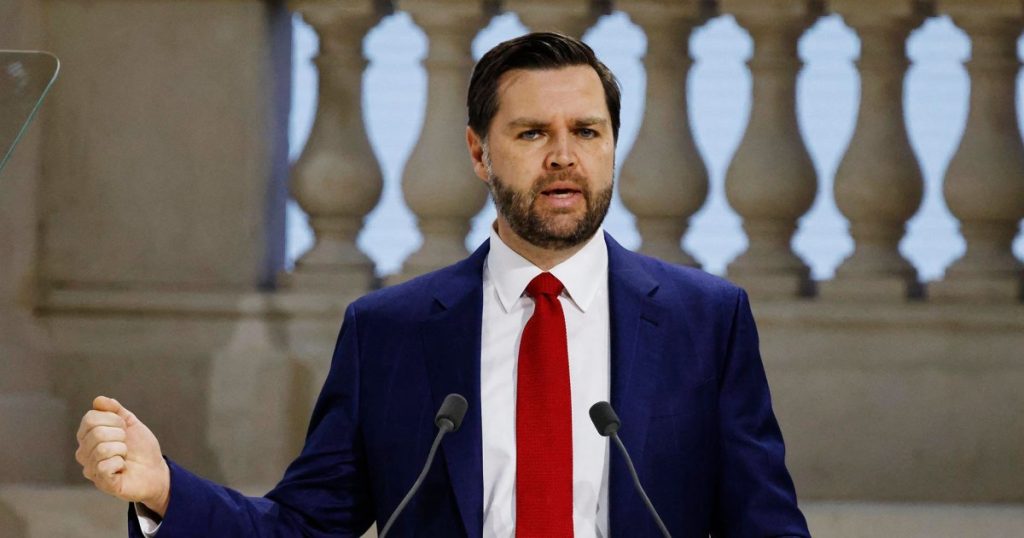US Vice President JD Vance Delivers Strong Message on AI Leadership at Paris Summit
In a spirited address at the Artificial Intelligence Action Summit in Paris, US Vice President JD Vance underscored the nation’s commitment to leading the AI revolution. Vance emphasized that while the US is open to international collaboration, it will not accept regulations that hinder its ambition to dominate the field. He likened EU regulations to strangling innovation, asserting that any global framework must foster, not impede, AI advancements. Vance’s speech marked his first on the international stage, highlighting the Trump administration’s prioritization of AI dominance, exemplified by the recent Stargate initiative aimed at investing billions in US AI infrastructure.
Vance Criticizes EU’s Regulatory Approach and Warns Against Authoritarian Partnerships
Vance criticized the EU’s approach to regulating AI, particularly efforts to control online content, which he argued risked stifling free expression. He drew a clear line between protecting vulnerable individuals and restricting adult access to information deemed misinformation. Vance also cautioned European allies against collaborating with authoritarian regimes, warning that such partnerships could compromise their information infrastructure. This stance aligns with the US’s broader push to limit Europe’s engagement with Chinese tech companies like Huawei.
US Refuses to Endorse French-Led AI Statement, Highlighting Transatlantic Divide
The summit revealed growing tensions between the US and Europe as the US declined to sign a French-led joint statement advocating an "inclusive and sustainable" AI approach. This decision underscored the differing visions for global AI governance. While the statement garnered support from around 60 countries, the US’s refusal highlighted its preference for a more independent, competitive strategy, reflecting Vance’s emphasis on unencumbered innovation.
French President Macron Counters with Vision of AI Cooperation and Sustainability
French President Emmanuel Macron offered a contrasting perspective, advocating for streamlined regulations and international collaboration. Macron highlighted France’s nuclear power infrastructure as a sustainable advantage for energy-intensive AI operations, humorously contrasting it with the US’s "Drill, baby, drill" approach. He stressed the necessity of cooperation with both the US and China, emphasizing that France’s nuclear energy could support data centers without fossil fuels, epitomized by his quip, "Plug, baby, plug."
AI as a Tool for Democracy Versus Authoritarianism, with Global Implications
The summit also touched on the geopolitical implications of AI, with Vance warning against authoritarian regimes exploiting AI for surveillance and military gain. Conversely, Reid Hoffman, LinkedIn co-founder, emphasized the importance of Western democracies leading AI development collectively. This narrative positions AI as both a tool for progress and a potential weapon, with the US urging its allies to avoid compromising their values through partnerships with authoritarian states.
Conclusion: The High Stakes of Global AI Competition
The Paris summit illuminated the high stakes in the AI race, with the US asserting its leadership while Europe seeks a balanced approach. As nations navigate the challenges of AI, collaboration and regulation will be crucial. Vance’s address not only highlighted US priorities but also the broader debate on how to harness AI responsibly, reflecting the delicate balance between innovation, regulation, and geopolitical influence. The outcome of this race could shape the future of global power dynamics and technological advancement.












